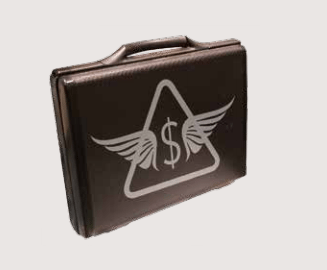You must have more than a great idea.
A patent application, a professional prototype and realistic assessment of your product’s or service’s commercial potential are minimum early assets. These are usually financed by you or your friends and family, but don’t promise the farm. Your angel may want 49 percent of your business, and if you give your relatives 20 percent to get started, you’ll end up with only 31 percent. Maybe that’s the only way to start, but a good friendship could be lost.
You’ll need a business plan,
but most plan templates are too complicated and too detailed for a small start-up. How to include enough information but still keep your plan simple is asking a lot. So read about small business start-up planning before writing yours. Your initial contact plan should be aimed at a first meeting, not necessarily a deal conclusion. After all, potential angels are betting on you, first, and then on your product or service. Therefore, any plan that is more than about 10 pages may lose your reader.
Don’t start contacting by winging it.
There is a ton of printed guidance out there, and you’re a fool if you rush in without doing your homework. I’d buy this book first if I were thinking about a start-up and angel financing: “The Art of Startup Fund Raising,” by Alejandro Cremades. It boasts a solid five stars based on 129 ratings. If nothing else, such a book will help you when you don’t know what you don’t know.
Take a lesson from “Shark Tank.”
The first question the sharks ask is how many you have sold. If you haven’t sold any, the next best thing to sales is the promise of sales. In any event, do not pull estimated sales figures out of the air. The sign of an amateur is to start with the population of the United States and work down to potential customers with a statement like, “If only one person in a hundred buys my widget, we’ll make a fortune.” That kind of amateurish fiction is bound to turn off every angel you contact. Survey potential customers and sellers of your eventual product, and obtain “I’ll buy it” statements that you can use in your business plan or sell-sheet. For more on this, read my free private paper #38, “Evaluating the Market Potential of Your Invention.”
Be aware that angels will have, and want you to have, a clear exit strategy.
Even though they may act fatherly or motherly at times, they don’t want to adopt you. They will typically expect to sell the start-up in five to seven years, having aimed for a compounded return of about 30 percent per year on their investment. That doesn’t mean it will be achieved, but it is a realistic expectation and goal when one considers the high failure rate of start-ups.


